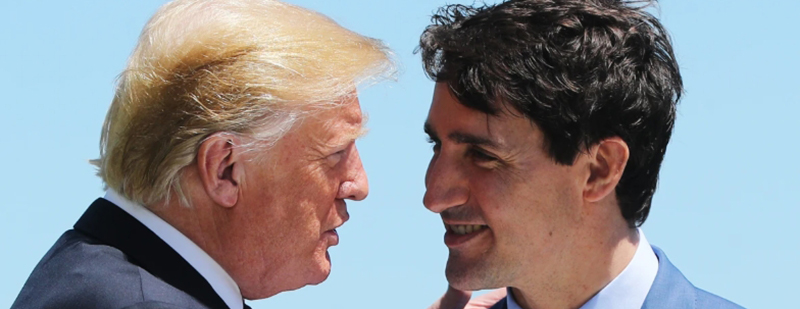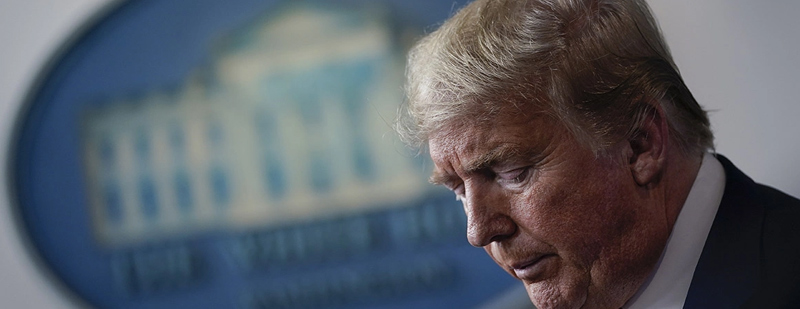-
周波:中国已经主导西太平洋了吗?
Is China’s primacy over the Western Pacific already a reality?
【Zhou Bo】
In 1999, Gerald Segal, then Director of Research at the International Institute of Strategic Studies, made a considerable splash with his essay “Does China matter?” in Foreign Affairs. Touching upon the economic, political and strategic issue of China, his overall conclusion was that China’s importance had been greatly exaggerated. For Mr Segal, China is but a small market ‘that matters little to the world, especially outside Asia’.
Two decades later, Mr Segal must be turning in his grave to see how his argument has made him a laughing stock. Rather than “a small market", China is now the largest retail market, consumer market, e-commerce market, luxury goods market and even new car market in the world. It is also the largest trading nation, industrial nation and the largest exporter in the world and the largest trading partner to around 130 countries. In the last four decades, no challenges have seemed able to stop China’s advance by leaps and bounds, be it the Asian financial crisis or Trump’s trade war with China, for instance.
Amid the ravaging pandemic, China looks like the eye of global storm, the safest haven on earth. It was the first to suffer from the pandemic, but also the first to recover from it, being the only country to have registered economic growth in 2020.
It is helping others, too. By the end of June, China has provided 450 million doses of its vaccines to nearly 100 countries.
However impressive these facts might be, it is wrong to conclude that the 21st century will be Pax Sinica. In fact, even in East Asia, China’s home ground, China’s primacy is not fully evident.
By contrast with Europe that is bound together by a common culture and religion, Asia has been diversified and pluralistic from day one with distinctive geographies, diversified cultures and religions. No matter how in centuries past, the Chinese thought China was the cultural, political or economic centre of the world and their sovereign had a right to rule “all under Heaven,” China never attempted to control the whole of East Asia. Deference to the Middle Kingdom and exotic gifts from tributary states were all that the Ming and Qing emperors wanted.
There is no doubt about China’s economic primacy in East Asia. In August 2010, China overtook Japan as the world’s second largest economy. According to the UK-based Centre for Economics and Business Research (CEBR), China will overtake the US to become the world’s largest economy by 2028.
With the US absent from RCEP- Regional Comprehensive Economic Partnership, the biggest trade bloc in history that accounts for about 30% of the world’s population and 30% of global GDP-and with China’s expressed interest in joining the Comprehensive Progressive Trans-Pacific Partnership (CPTPP) just days after RCEP’s conclusion, Beijing looks a firm leader in multilateralism.
East Asia won’t be Sino-centric. Even if there is talk of a “Greater China” that encompasses mainland China, Hong Kong, Macau, and Taiwan and sometimes Singapore, there are no signs that the Chinese wish to export their ideological or development model.
If a sphere of influence means that a state has a level of cultural, economic, military, or political exclusivity in a region in which other states show deference to the power, then East Asia won’t look like China’s sphere of influence under scrutiny. DPRK has anyway developed nuclear weapons anyway despite China’s disapproval. Japan, Republic of Korea and Thailand are American allies.
Some ASEAN countries such as Vietnam, the Philippines and Malaysia and Brunei have territorial disputes with China in the South China Sea.
Would an ever-rising China make the world a better place? This is the ultimate question for the 21st century. Even those most critical of China cannot deny that China’s rise in the last four decades is peaceful -a rare phenomenon for any rising power. China has no war since its reform and opening up in 1979.
Therefore, the brawl resulting in the deaths of 20 Indian soldiers and four Chinese servicemen in the Galwan Valley in the border areas between China and India in June 2020 was most unusual and unfortunate, to the extent that Indian External Affairs Minister Subrahmanyam Jaishankar said that bilateral trust was “profoundly disturbed”.
But the fact that the two troops chose to use fists and wooden clubs to fight in a stone-age manner showed they knew they should not shoot at each other under any circumstances to violate a tacit agreement.
In this regard, a kind of maturity and rationality still prevailed. Since the Chinese and Indian troops have withdrawn from the border areas that each claimed to be its own and a de facto buffer zone established, the situation has de-escalated. Hopefully, the deadly brawl will provide useful lessons for the two governments in finding out new ways to enhance confidence-building, such as setting up a hotline between the border troops.
The real challenge in East Asia is not how China will deal with its neighbours and vice versa - they know how to deal with each other through thousands of years of historical engagement. It is how China might coexist with the US, a non-Western Pacific nation but a self- claimed guardian of the “free and open Indo-Pacific”. China suspects the US wants to confine Chinese influence within the Western Pacific while the United States suspects a stronger China is trying to drive it out of the region. Looking down the road, the great power competition initiated by the Trump administration will only become more fierce in days to come.
The question is whether competition will slide into a confrontation that neither wants.
Risk reduction for Beijing and Washington is difficult for two reasons if one looks into the history of the Cold War. First, during the Cold War, there were clearly separate spheres of influence dominated by Washington and Moscow that allowed them to avoid direct confrontations. But between China and the United States, there isn’t even a buffer zone. Nowadays American naval vessels regularly sail through the waters off Chinese islands and rocks in the South China Sea and the Taiwan Strait.
Second, the United States and the Soviet Union were balanced by mutually assured destruction. This is not found between Beijing and Washington. But in the Western Pacific, the gap in military strength is shrinking in China’s favour thanks to the advances of the PLA in the past decades. As a result, Washington is investing more militarily in the region and calling on its global allies and partners to gang up on China. This in turn would irk Beijing and make the situation more volatile.
There is no guarantee the US would win in a military conflict with China in the first island chain that stretches from Japan to the Philippines and the South China Sea. But should it lose, the consequence would be a domino effect: The US would lose prestige and credibility among its allies and partners in the region; The alliance would fall apart and it would have to pack and go home.
Short of global military presence though, China’s influence is already felt worldwide, especially through such mega-projects as the Belt & Road Initiative which is the largest project on infrastructure in human history. A global China doesn’t need to seek dominance anywhere. Instead, it needs to think globally and act responsibly in line with the great responsibility that is intrinsically associated with great powers.
- 原标题:周波:中国已经主导西太平洋了吗? 本文仅代表作者个人观点。
- 责任编辑: 朱敏洁
-

美国新增确诊110548例、死亡2591例
2021-10-07 08:20 新冠肺炎抗疫战 -

英国天然气价格飙升37%创历史新高 多个行业停产
2021-10-07 08:19 -

英媒:北约决定将俄常驻北约代表人数削减一半
2021-10-07 08:01 -

法国驻澳大使也要返回堪培拉了
2021-10-07 07:58 -

耿爽:个别国家将“东伊运”从本国恐怖组织名单除名 应立即纠正
2021-10-07 07:37 -

双方同意采取行动,推动中美关系重回正轨
2021-10-07 07:25 中美关系 -

-

华盛顿“丧钟”敲响700次
2021-10-06 19:21 新冠肺炎抗疫战 -

“我们的耐心有限”法国威胁英国
2021-10-06 18:40 欧洲乱局 -

对着布林肯,法国记者直言“终究是错付了”
2021-10-06 17:24 法国见闻 -

特朗普25年来首次跌出美国400富豪榜,福布斯:怪你自己
2021-10-06 15:38 特朗普 -

印度煤炭严重短缺,燃煤电厂平均仅剩4天余量
2021-10-06 14:31 印度惊奇 -

被背后“捅刀”的法国还相信美国吗?马克龙说了这么一句
2021-10-06 14:23 法国见闻 -

美国时隔近四年后首次公布核弹头总数:3750枚
2021-10-06 13:35 凉战 -

美媒披露CIA绝密电报:损失数十名外国线人,谍报技术糟糕
2021-10-06 12:22 -

耿爽在联大点名批评美日
2021-10-06 10:51 中国外交 -

阿富汗美式军火商店开张?阿塔否认
2021-10-06 10:26 阿富汗 -

9月份全球制造业PMI为55.6%,连续4个月环比下降
2021-10-06 10:10 -

美国一架F/A-18F战机训练中坠毁
2021-10-06 10:01 美国一梦 -

史上首次!俄罗斯在国际空间站拍摄太空电影
2021-10-06 09:52 航空航天
相关推荐 -
 “中国知道,特朗普何时会眨眼” 评论 0
“中国知道,特朗普何时会眨眼” 评论 0 特朗普又“眨眼”:中方来谈吧,签个“特殊协议” 评论 467
特朗普又“眨眼”:中方来谈吧,签个“特殊协议” 评论 467 “中国打贸易战有秘密武器:AI机器人大军” 评论 108
“中国打贸易战有秘密武器:AI机器人大军” 评论 108 中国不买美国液化气了,换中东 评论 112最新闻 Hot
中国不买美国液化气了,换中东 评论 112最新闻 Hot-

特朗普又“眨眼”:中方来谈吧,签个“特殊协议”
-

六大重磅团体罕见联名抗议,“特朗普考虑豁免中国汽车零件”
-

又发癫!“没了中国,英国你能行?”
-

特朗普夸口:特鲁多说了,没美国就没加拿大
-

“就算加100%关税,中国口罩也比美国货便宜”
-

暴跌71%!马斯克叹气:我劝过特朗普,听不听由他
-

12州联合起诉:特朗普,收手吧
-

特朗普警告泽连斯基:再打3年,你国都没了
-

美媒放风:特朗普考虑大幅下调对华关税,或降至50%-65%
-

“共和党人气坏了,但碍于特朗普只能保持不安的沉默”
-

最后一刻,他俩都不去了
-

“纯关税壁垒最粗暴,欧盟快和中国谈吧”
-

总计7亿欧元,欧盟对苹果、Meta“罚酒三杯”
-

“中国打贸易战有秘密武器:AI机器人大军”
-

“俄乌都得在领土上让步,再不同意美国就退出”
-

中国不买美国液化气了,换中东
-
Copyright © 2014-2024 观察者 All rights reserved。
沪ICP备10213822号-2 互联网新闻信息服务许可证:31220170001
网登网视备(沪)02020000041-1号 互联网宗教信息服务许可证:沪(2024)0000009
广播电视节目制作经营许可证:(沪)字第03952号
增值电信业务经营许可证:沪B2-20210968 违法及不良信息举报电话:021-62376571
![]() 沪公网安备 31010502000027号
沪公网安备 31010502000027号
![]() 中国互联网举报中心
中国互联网举报中心
 上海市互联网违法与不良信息举报中心
上海市互联网违法与不良信息举报中心

 观察员
观察员


